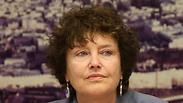
The Bank of Israel has long been bemoaning the state's failure to integrate various population groups into the job market. Now, the central bank appears to be putting its money where its mouth is; and last week, it hosted a convention designed to promote integration of minorities at the institution.
The event, attended by dozens of members of the Arab community, was organized in conjunction with the Kav Mashve non-profit organization, which promotes equal employment opportunities for Arab university graduates within the Israeli business sector.
For some two hours, more than 60 economics and accountancy students were given an overview of the workings of the bank and tips on how to increase their chances of securing employment there. They were also surprised to learn that the bank employs only eight Arabs out of a total staff of more than 750.
"There are perks for people who come from far away, and the bank offers numerous interesting roles," said Pnina Keren, deputy director of human resources at the bank.
According to Bank of Israel senior staffer Talat Abulil, who led the event, "Most of our population lives in the north. I travel every day from Nazareth to Jerusalem because I want my family to remain in the north. I have been working at the bank for 10 years, and I rose to a senior position not because I am an Arab."
Kav Mashve's Jana Neuman said she hoped the event would lead the recruitment of additional minorities at the bank.
"The bank wants occupational diversity and the goal of the convention is to expose potential candidates to the bank," she said.
Bank of Israel chief Karnit Flug recently warned that demographic changes such as aging and the growth of Arab and ultra-Orthodox populations are threatening the country's long-term growth prospects, and called for a continued increase in their employment.
Flug said the low employment rate among ultra-Orthodox men and Arab women in particular was hindering growth and while both segments were showing increased employment, without a drastic change Israel would suffer compared to other developed nations.

















